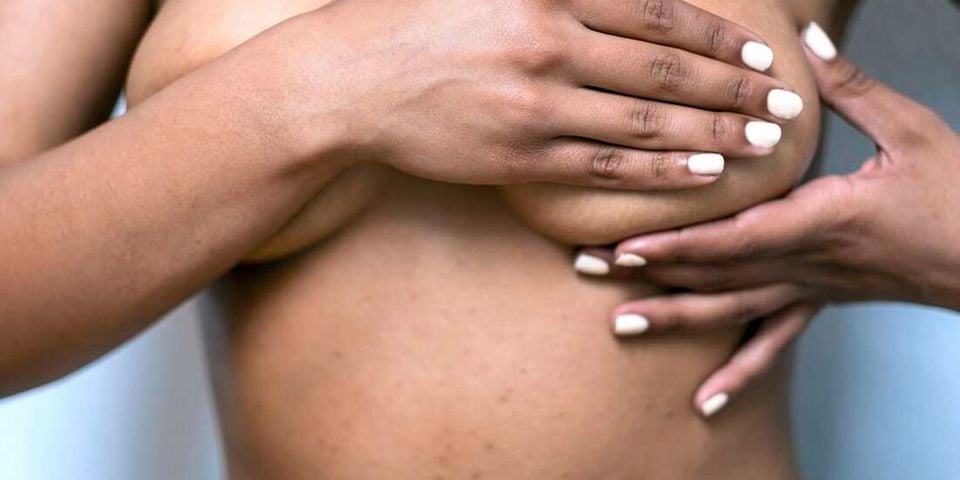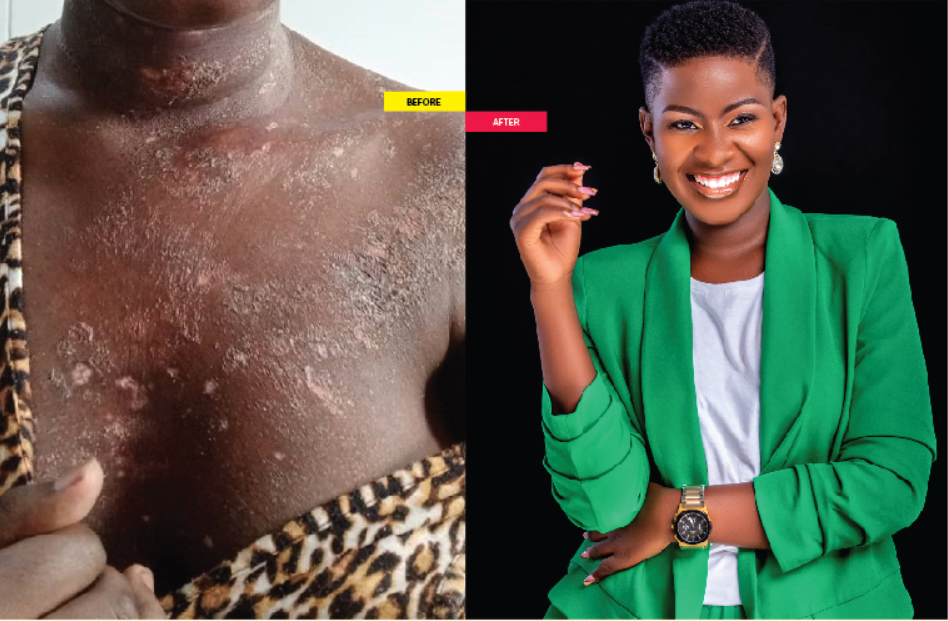Prime
Ask the Doctor: Nipple discharge, what it could mean?

A woman's breast. Women are encouraged to seek medical attention in case of any unusual developments on their breasts. PHOTO/NATION AFRICA
What you need to know:
- For other women, although the breasts may have developed the ability to make milk during pregnancy, they may not discharge the milk until after delivery.
I am six months pregnant. What worries me is the purse coming from my breasts for one month now. Although I feel no pain, when I remove my bra, I always notice the pus. Could this be due to too much heat where I live in Kapchorwa? Anonymous
Dear Anonymous,
Before a mother gets her period or when she gets pregnant, her breasts may get heavy and painful as they start preparing to breast feed a baby. These breast changes happen due to increased levels of female hormones.
After three months of pregnancy, some women may start producing some yellow, thick milk called colostrum which upon leaking out of the breasts as sometimes normally happens, may be mistaken for pus from infected breasts. The colostrum, when it appears, is one reason why many children may wean themselves off the breasts if a mother gets pregnant while breast feeding.
For other women, although the breasts may have developed the ability to make milk during pregnancy, they may not discharge the milk until after delivery. Following late miscarriage, however, breasts may discharge milk as well make many women fear that the leaking of milk during pregnancy may be due to a disease condition or worse still, death of the unborn in the womb.
Any woman intending to get pregnant should visit her doctor for examination apart from psychological and other preparations for a healthy outcome of the baby and herself. Also, when one gets pregnant or when she delivers, she still requires visiting her doctor for examination and advice as well.
These so-called prenatal, antenatal and postnatal tests are important for the said healthy outcomes, apart from maintaining good health for the mother and baby.
Although a pregnant woman, whether it is hot or not, can leak colostrum without having any medical issues herself or her unborn child, please visit your antenatal clinic for further help to calm down your fears.
Wound healing and the itching dilemma
Why does a wound itch when it is about to heal and is it true that if it does not itch it will not heal? Bashir
Dear Bashir
Many injured people will find that when the wound is about to heal, it gets noticeably itchier. Unfortunately, with children and invalids, scratching or even chewing away the healing wound’s protective scab may create a more gaping wound with a likelihood of infection and delayed healing.
Immediately after one incurs skin injury, there may be a swelling due to bleeding into the injured tissues. If there is external bleeding, then the body may mobilise blood elements to stop bleeding by forming a clot.
The clot also helps seal off the area to protect it from entry of sickening substances or infection-causing germs.
Later, the injured tissues may swell resulting from an increased movement of fluid, chemical substances and white blood cells into the area of injury for further protection.
The release of chemicals (into the injured area) and the compression of nerves in the area of injury causes pain. Chemicals usually help the small blood vessels to become more porous and bring in more fluid and cells to protect the area but some of the chemicals can both contribute to pain (kinins) and itching (histamines).
When healing is almost complete, the swelling contributing to pain due to compression of nerves at the site goes down. However, with substances such as histamine still lingering around, one’s healing wound may then feel more itchy than painful.
Therefore, one should not worry about the itching unless it is very serious or a child or an invalid is likely to scratch or chew into the healing wound, creating a fresh wound.



